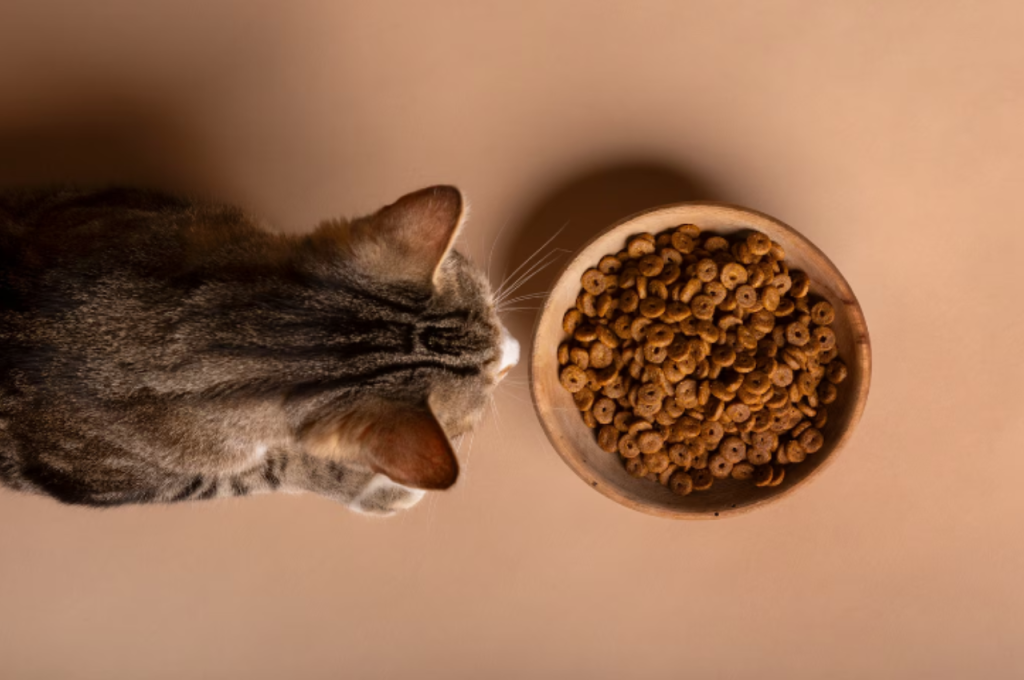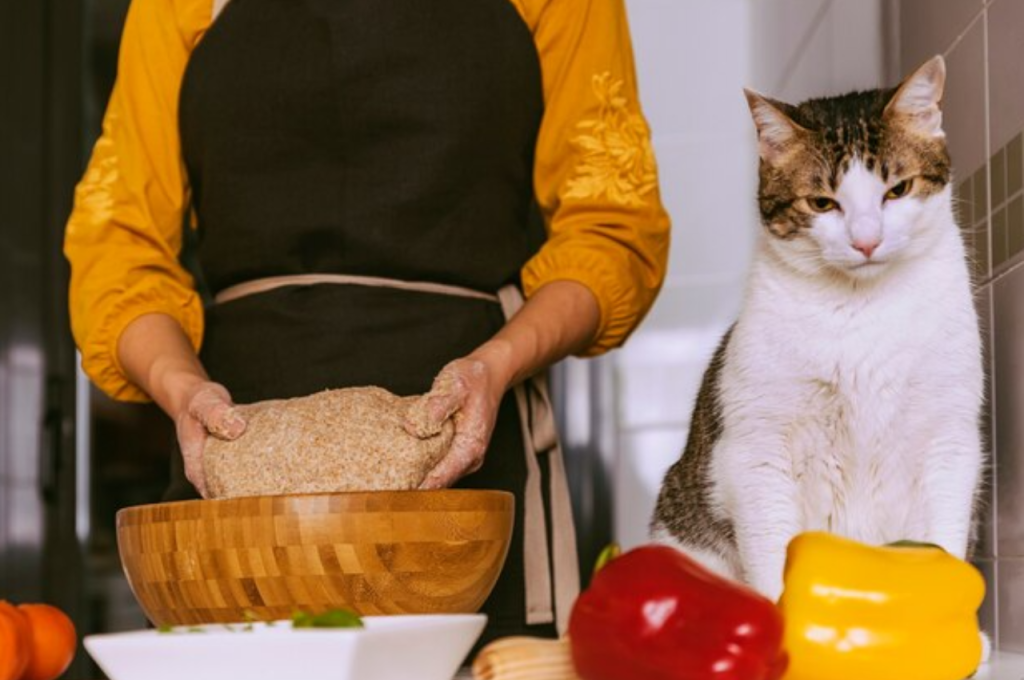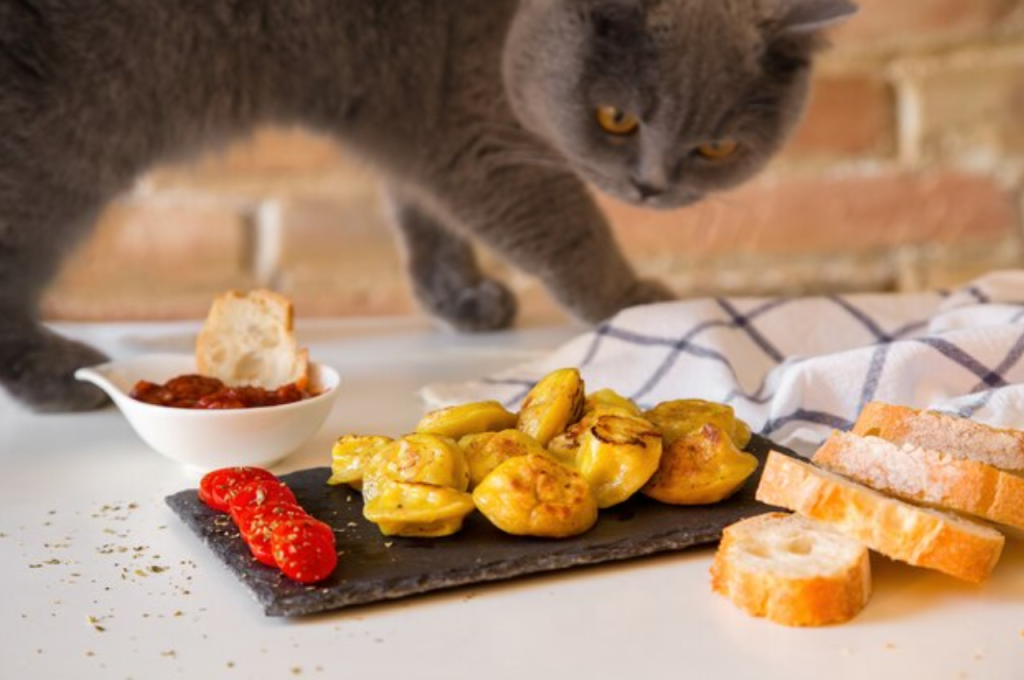The ideal diet for cats consists of high-quality proteins, essential fatty acids, vitamins, and minerals. It should be balanced and tailored to their age and health needs.
Cats are obligate carnivores, so their diet should primarily consist of animal-based proteins. Commercial cat foods that are AAFCO-approved can provide a complete and balanced diet for cats. Additionally, fresh water should always be available for proper hydration. It’s important to consult with a veterinarian to determine the best diet for your cat’s specific needs to ensure their overall health and well-being.
By providing a nutritious and well-rounded diet, you can help your feline friend thrive and lead a healthy life.
Introduction To Feline Nutrition
Cats are unique creatures with specific dietary needs. Providing your feline friend with a balanced and nutritious diet is crucial for their overall health and well-being. In this section, we will explore the importance of a balanced diet for cats and debunk common misconceptions surrounding feline nutrition.

The Importance Of A Balanced Diet
A balanced diet plays a vital role in maintaining your cat’s optimal health. Just like humans, cats require a combination of essential nutrients to thrive. These nutrients include proteins, fats, carbohydrates, vitamins, and minerals. Each nutrient serves a specific purpose in your cat’s body, contributing to their growth, development, and overall functioning.
To ensure your cat receives the necessary nutrients, it is crucial to offer a balanced diet that meets their dietary requirements. A well-balanced meal helps support their immune system, maintain healthy skin and coat, promote proper digestion, and provide energy for daily activities. By providing a balanced diet, you are investing in your cat’s long-term health and happiness.
Common Misconceptions
There are several misconceptions when it comes to feeding cats, which can potentially harm their health. Let’s address some of these misconceptions:
- Feeding a cat a solely vegetarian or vegan diet: Cats are obligate carnivores, meaning their bodies are designed to primarily consume animal-based protein. While some nutrients can be obtained from plant sources, cats require certain amino acids, such as taurine, which are only found in animal tissues. It is essential to provide your cat with a diet that includes high-quality animal protein to meet their nutritional needs.
- Feeding only dry food: While dry cat food can be convenient, it is important to note that cats have a low thirst drive. They obtain most of their hydration from their food. A diet solely consisting of dry food may lead to chronic dehydration, urinary tract issues, and other health problems. Offering a combination of wet and dry food or a predominantly wet food diet can help ensure your cat stays adequately hydrated.
- Overfeeding or free-feeding: Cats have a natural tendency to eat small, frequent meals throughout the day. Overfeeding can lead to obesity and associated health issues. It is recommended to feed cats portion-controlled meals based on their age, weight, and activity level. This helps maintain a healthy weight and prevents overconsumption.
By understanding the importance of a balanced diet and dispelling common misconceptions, you can provide your feline companion with the optimal nutrition they need to thrive.
Essential Nutrients For Cats
Cats require a well-balanced diet to thrive, and ensuring they receive the essential nutrients is crucial for their overall health. These nutrients include proteins, fats, vitamins, and minerals, each playing a vital role in supporting your feline friend’s well-being.
Proteins: The Building Blocks
Proteins are essential for cats, serving as the building blocks for various tissues and organs, including muscles, skin, and hair. They also play a key role in supporting a healthy immune system and aiding in the overall growth and development of your cat.
Fats: Source Of Energy
Fats are a vital source of energy for cats, providing them with the fuel they need to stay active and maintain optimal body functions. Additionally, fats help in the absorption of fat-soluble vitamins and contribute to healthy skin and a shiny coat.
Vitamins And Minerals: Ensuring Vitality
Vitamins and minerals are crucial for maintaining your cat’s vitality and overall well-being. They support various bodily functions, including bone health, vision, and immune system function. Ensuring the proper intake of vitamins and minerals is essential for your cat’s long-term health.
The Role Of Water In A Cat’s Diet
Understanding the role of water in a cat’s diet is crucial for maintaining their overall health and well-being. Cats are obligate carnivores, meaning they require a diet primarily composed of meat. However, their need for water is equally vital, as it plays a significant role in their physiological functions.
Hydration Basics
Cats have a low thirst drive, stemming from their desert-dwelling ancestors. As a result, they often do not consume adequate amounts of water purely through drinking. Therefore, it’s important to incorporate moisture-rich foods into their diet, such as wet cat food or raw meat, to ensure they stay hydrated.
Signs Of Dehydration To Watch For
Recognizing the signs of dehydration in cats is essential for their well-being. Some common indicators include lethargy, sunken eyes, dry and tacky gums, and decreased skin elasticity. If you notice these symptoms, it’s crucial to encourage your cat to drink more water and consult a veterinarian if necessary.
Commercial Vs. Homemade Diets
When it comes to providing the ideal diet for your cat, you have two main options: commercial foods or homemade meals. Both choices have their own pros and cons, and it’s important to understand them before making a decision.
Pros And Cons Of Commercial Foods
Commercial cat foods are readily available and convenient for pet owners. They come in various forms such as kibble, canned, or freeze-dried, offering a wide range of options to suit your cat’s preferences. Here are the pros and cons of feeding your cat a commercial diet:
| Pros | Cons |
Convenient and easy to store Formulated to meet specific nutritional requirements Often fortified with essential vitamins and minerals May have a longer shelf life | May contain fillers and artificial additives Limited control over ingredients quality Some cats may develop allergies or sensitivities Cost can be higher in the long run |
How To Prepare Balanced Homemade Meals
If you prefer to have more control over your cat’s diet, preparing balanced homemade meals can be a great option. Here are some steps to ensure your homemade cat meals are nutritionally balanced:

- Consult with a veterinarian or veterinary nutritionist to understand your cat’s specific dietary needs.
- Choose high-quality protein sources such as lean meat, poultry, or fish.
- Incorporate a variety of vegetables to provide essential vitamins and minerals.
- Include a source of essential fatty acids, like fish oil or flaxseed oil.
- Consider adding supplements like taurine to meet your cat’s specific nutritional requirements.
- Avoid ingredients that are toxic to cats, such as onions, garlic, and certain spices.
- Monitor your cat’s weight and overall health regularly, adjusting the homemade diet as needed.
Preparing homemade meals for your cat requires time and effort, but it allows you to have full control over the ingredients and their quality.
Understanding The Needs Of Different Life Stages
Kittens: Growth And Development
Kittens have specific dietary requirements to support their rapid growth and development. Protein is crucial for their muscle and tissue development, so their diet should be rich in high-quality sources such as chicken or fish. They also need higher levels of fat for energy and essential fatty acids for brain development and vision.
Adult Cats: Maintenance
Adult cats require a well-balanced diet to maintain their overall health and energy levels. A diet with optimal levels of protein, vitamins, and minerals is essential. It’s important to monitor their weight and adjust their diet accordingly to prevent obesity, which can lead to various health issues.
Senior Cats: Managing Health Issues
As cats age, they may develop health issues such as kidney disease or dental problems. Their diet should be tailored to manage these conditions, with lower levels of phosphorus to support kidney function and a texture that is easier for them to chew and digest. High-quality protein and controlled levels of fat can help maintain muscle mass and prevent weight loss.
Special Dietary Considerations
When it comes to feeding your feline friend, special dietary considerations play a crucial role in their overall health and well-being. Cats may have unique needs or health conditions that require a specific diet to thrive.
Dealing With Allergies
- Cats can develop allergies to certain proteins or ingredients.
- Common signs of food allergies include itching, skin redness, and digestive issues.
- Consult with your vet to identify the allergen and choose a suitable diet.
Obesity Prevention And Management
- Obesity can lead to various health issues in cats.
- Ensure portion control and regular exercise for weight management.
- Consider low-calorie or weight-management diets for obese cats.
Managing Chronic Diseases Through Diet
| Chronic Disease | Dietary Approach |
| Kidney Disease | Low-protein diet to reduce kidney workload. |
| Diabetes | High-protein, low-carb diet to regulate blood sugar. |
| Hyperthyroidism | Prescription diets to manage thyroid function. |
Reading And Interpreting Cat Food Labels
Discovering the ideal diet for cats involves reading and interpreting cat food labels accurately. Look for high-protein, low-carb options to support their carnivorous nature and overall health. Understanding the ingredients and nutrient content is crucial for providing a balanced and nutritious diet for your feline friend.
The Future Of Feline Nutrition
Discovering the ideal diet for cats is crucial for their future nutrition. High-quality protein, essential fatty acids, and proper hydration are key components for feline health. Understanding their dietary needs ensures a balanced and thriving lifestyle for our feline companions.

Innovations In Cat Food
Cat food innovations are revolutionizing feline nutrition for the better.
- Nutrient-dense formulas cater to cats’ unique dietary needs.
- Functional ingredients promote overall health and well-being.
- Grain-free options mimic a cat’s natural diet more closely.
The Move Towards Sustainability
Sustainability is a key focus in shaping the future of feline nutrition.
- Eco-friendly packaging reduces waste and environmental impact.
- Ethical sourcing of ingredients supports responsible practices.
- Plant-based alternatives offer sustainable protein sources.
Conclusion
To ensure your cat lives a long, happy, and healthy life, it’s crucial to provide them with an appropriate diet. Feeding your cat a balanced diet of high-quality protein, healthy fats, and essential nutrients is key to maintaining their overall health.
It’s also important to remember that each cat is unique, and their dietary needs may vary based on factors such as age, weight, and activity level. Consult with your veterinarian to determine the ideal diet for your furry friend. By giving your cat the proper nutrition they need, you can help them thrive for years to come.
